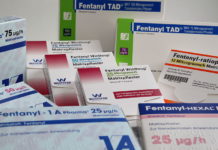Delving into the Signs of Impulse Control Disorders
Some individuals exhibit impulsivities, such as experiencing sudden urges to make unplanned purchases or a strong desire to travel unexpectedly. These thought patterns may not be a cause for concern when they occur infrequently or once in a blue moon. However, individuals on the opposite end of the spectrum may be grappling with a different kind of disorder.
People can often feel overwhelmed with their own emotions and behaviors. It can feel extremely isolating as some people try to overcome the immensely obsessive thoughts that come through. Impulse control disorder is a term that may fit the bill for most people.
If you’re curious about what an impulse control disorder is and the signs that come along with it, keep reading.
What Is an Impulse Control Disorder?
An impulse control disorder, also known as ICD, is a psychiatric condition wherein a person cannot control their recurring impulses. It can be debilitating at times as most people can’t spot the signs early on. The impulses and responses that one makes can go unnoticed and develop into worse over time.
Impulse control disorder is often an umbrella term for other types of behavior disorders that can occur. An oppositional defiant disorder where children can be challenging or intermittent explosive disorder where people can suddenly become aggressive are reflections of impulse control disorder.
There’s also some gray area between impulse control disorder and obsessive-compulsive disorder. ICD and OCD both feature a variety of symptoms that are similar to one another. Mainly, it’s the difficulty in asserting control over sudden impulses.
What Are the Examples Of ICD?
It would be difficult to enumerate the different types of impulse control disorder. Although there is a certain sameness in the responses of patients diagnosed with this psychiatric disorder, the impulse can vary from person to person. It goes beyond just impulsive purchases and trips, though. Here are some examples of impulses that can lead to the disorder.
- Pyromania. Pyromania is a condition that leads individuals to set different things on fire. It goes beyond the fascination and imagination of the individual with the fire, as they aim to carry out these impulses by setting something aflame.
- Kleptomania. Kleptomania is known for urges to take different things that are not theirs. Kleptomaniacs derive pleasure from stealing, which can be rather difficult to overcome as the impulses come regularly.
- Hypersexuality. Hypersexuality is a compulsive sexual behavior where the individual continually has thoughts and urges to have sexual activity. These go beyond regular urges as impulse control disorder results in constant promiscuity and masturbation.

Does ICD Lead to Addiction And Substance Abuse?
Impulse control disorders can greatly hamper a person’s quality of life as they constantly come back to listen to these obsessions that they may have developed or grown up with. When discussing this, OCD isn’t the only common illness that is brought up in comparison to it. Some question whether dealing with impulse control disorder is the same as substance use disorder.
This assumption doesn’t come without basis, as people who experience Kleptomania, Pyromania, Hypersexuality, and other kinds of impulse control disorder had issues with addiction as well. For example, the figures with Kleptomania showcase that almost 50% of patients have also dealt with substance abuse disorder.
Impulse control disorders don’t necessarily lead to substance abuse, though it potentially fuels difficult habits with addictive nature. Regardless, there’s a definite co-occurrence, and it can be hard to find a healthy coping mechanism when dealing with these conditions. It’s imperative to go and find help when you start to recognize both in your behavior and habits.
What Are the Symptoms Of ICD?
The symptoms of impulse control disorder can vary from person to person. As mentioned above, various impulses and triggers can overwhelm a person. A kleptomaniac’s symptom of stealing from the mall is vastly different compared to a pyromaniac’s symptoms of setting their belongings on fire.
However, aside from those specific indicators, there are also general signs that can help identify impulse control disorder. Here are a few:
- Easily Irritable. No matter what type of impulse control disorder one has, most patients diagnosed with it will display irritability. This stems from their dismay and the lack of pleasure when they can’t carry out their impulses. When they are able to carry it out though, the patients would feel an intense high.
- Developing Fears. People with impulse control disorders are often devoid of terrors from the very actions that they do, like how pyromaniacs aren’t afraid of fire. However, they do develop certain thoughts about getting caught or stopping their impulses. There are also fears of having your loved ones abandon you due to the disorder.
- Intrusive Thoughts. People with impulse control disorders will find themselves thinking about their impulses and planning how they can execute them all the time. The thought patterns can be constant and recurring, making them difficult to block out.
- Compulsive Actions. People with impulse control disorders will desire to comply with these ideas. It can be difficult, as a patient doesn’t want to do anything besides carrying out the obsessions that they are contemplating over and over again.
What Are the Effects Of ICD?
Impulse control disorder can be hard to spot as some people just dismiss the thoughts they have as normal. However, there’s a big difference between typical impulsive behavior and impulse control disorder. The disparities are most obvious in the effects as occasional impulsivity doesn’t lead to long-term damage and repercussions.
Here are some of the consequences that impulsive control disorder can have on an individual:
- Depression and Anxiety. Most people develop situational depression and anxiety disorders due to their impulse control disorder. It can become even harder to satisfy the volume and demands of one’s impulses.
- Physical Affliction. People with impulse control disorders will find themselves in physical pain depending on the compulsive actions that they carried out. Those who are aggressive get into fights and incur plenty of bruises, as patients who love setting things on fire will experience burns.
- No Regard for One’s Self. As alluded to above, people with impulse control disorders will find all sorts of ways to cope with their impulses. Some people turn to substance use and other harmful habits to get rid of the intrusive thoughts that their conditions bring.
- Broken Relationships. Aside from losing regard for themselves, people with impulse control disorders also lose care and interest in their relationships with others. Focusing only on fulfilling the impulses can deeply hurt patients’ ties with their family, friends, and acquaintances.
What Is the Treatment For ICD?
Whether you’re spotting the signs or the effects of impulse control disorder in yourself or a loved one, know that it’s not too late to get the proper treatment to help manage those symptoms. There’s also treatment available for accompanying disorders like OCD, depression, anxiety, substance abuse, and more.
Two main methods of treating impulse control disorder are habit reversal and medication. Habit reversal entails stopping a person from their compulsive actions even when the impulses come, allowing a patient to recognize the harm that those ideas bring. The medication also helps in minimizing the impulse control disorder’s physical and mental effects.
Conclusion
Impulse control disorders can be quite difficult to come to terms with, but it’s an important step in addressing your condition and getting better. Don’t give up hope, as there are still ways to recover from these conditions. Find a support system and seek help.
Source: https://www.tamuct.edu/research/databases/disorders/impulse-control-disorders.html
















